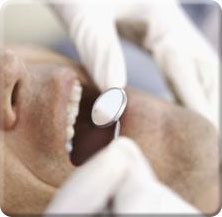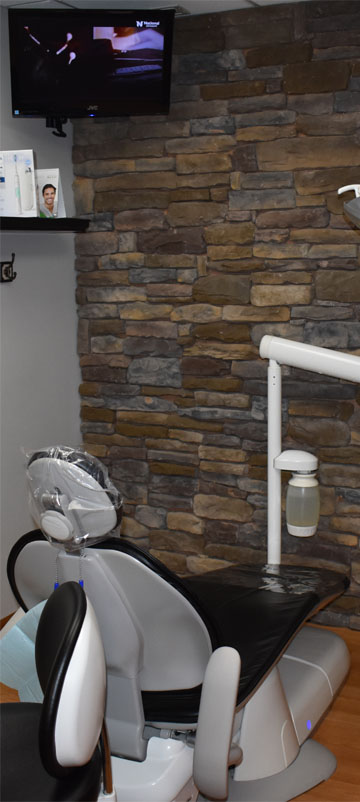 Receding gum lines can be a routine part of the aging process. The problem occurs when the warning signs are evident much sooner than normal. If you notice premature gum recession, you’ll want to have this checked out immediately by a dentist. An early and accurate diagnosis is always the best approach to addressing the issue.
Receding gum lines can be a routine part of the aging process. The problem occurs when the warning signs are evident much sooner than normal. If you notice premature gum recession, you’ll want to have this checked out immediately by a dentist. An early and accurate diagnosis is always the best approach to addressing the issue.
First of all, it may be your brushing technique. You may be brushing too harshly or using hard bristles which can be extremely abrasive on your gums. Moore Family Dental recommends using soft bristle brushes. Also, you don’t need to use excessive force when brushing – you shouldn’t see sparks flying!
Also gum recession may be a sign of gingivitis. This is a type of gum disease and it is important for you to treat it so it doesn’t progress. If left untreated, it can progress to periodontitis; ultimately, if there is enough damage, you may lose teeth.
The good news is that treatment can make a tremendous difference. First, let’s get a little background on this condition. The culprit is not surprising: bacteria. Do you remember elementary school health classes? Bacteria and everything else in your mouth form plaque. Unfortunately, even when you brush and floss faithfully, you cannot completely remove all of it.
Other factors can increase your chances of developing gingivitis and even periodontitis. Genetics can be a factor, as can uncontrolled diabetes. “Diabetes increases the risk for gum disease, possibly because people with diabetes are more prone to infection. Gum disease also makes it harder to control diabetes.” Finally, if you are a smoker, another incentive to quit may be to avoid gum disease. “According to the American Dental Association, smoking may be the cause of almost 75% of periodontal diseases.”
The American Dental Hygienists’ Association cites an additional risk factor which originated in recent years: lip piercing. It causes the gums to recede because of the “continual contact with the stud on the inside of the lip.” The result is that proper brushing becomes very challenging, “increasing the chances of plaque build-up, which could lead to long-term problems such as gingivitis.” What is the best thing to do? “Removing the piercing is the best solution, as there is no way to prevent gum line recession with an object constantly rubbing against the gums.”
Even if you are a non-smoker who does not have diabetes, a genetic connection to gingivitis, or a lip piercing, you may still be at risk as a result of bacteria. “In gingivitis, the gums become red, swollen and can bleed easily. Gingivitis is a mild form of gum disease that can usually be reversed with daily brushing and flossing, and regular cleaning by a dentist or dental hygienist. This form of gum disease does not include any loss of bone and tissue that hold teeth in place.”
It is essential to treat gingivitis so it cannot progress to periodontitis, which can eventually result in the destruction of the “bones, gums, and tissue that support the teeth.” If that is the case, “the teeth may eventually become loose and have to be removed.”
When you look at your smile, check on your gums; if they seem smaller, schedule a dental appointment, don’t procrastinate. If you have any risk factors, you should also discuss this with a dentist. The staff at Moore Family Dental is always ready to assist with any dental situation.



